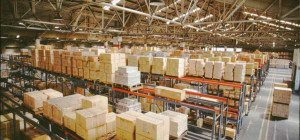 Food poisoning is a serious business. In some very rare cases it can be lethal. Fortunately, it’s incredibly easy to avoid. As long as basic hygiene and food safety rules are always followed, nasty bugs like salmonella, e-coli and staphylococcus will never manage to gain a foothold on food or in the kitchen.
Food poisoning is a serious business. In some very rare cases it can be lethal. Fortunately, it’s incredibly easy to avoid. As long as basic hygiene and food safety rules are always followed, nasty bugs like salmonella, e-coli and staphylococcus will never manage to gain a foothold on food or in the kitchen.
Whilst it's important for everybody to adhere to high standards of cleanliness when cooking, it is even more vital that those involved in commercial kitchens and public catering services follow recommended food safety rules. A restaurant chef or a buffet caterer quite literally holds the health of diners in their (hopefully very clean) hands, so it is essential that they do not abuse this trust and that they do everything in their power to serve food safely.
The NHS website's guide to food safety is keen to reiterate that the vast majority of health guidelines should be general knowledge for most people. Things like regular hand washing, using separate chopping boards and storing meat properly should be done by everybody, not just those in commercial kitchens. Here are some of the most important pieces of personal hygiene and food safety advice. Remember, for those who work in the catering business - this is doubly important.
Cleanliness
There is no such thing as too clean, especially in a commercial kitchen. Regular hand washing is an absolutely necessity. Hands must be washed before and after cooking. Hands must be washed after going to the toilet, touching raw meat, handling waste or refuse, taking a break, smoking, sneezing or playing with hair. There should be absolutely no exception to these rules. Northdevon.gov.uk even provides a step-by-step guide to washing hands, for those working in commercial kitchens. Work surfaces must be cleaned regularly with soap and water. Never prepare vegetables on the same surface as raw meat, unless that surface has been thoroughly cleaned in between the two processes.
Remember to boil wash dishcloths and sponges regularly, as they tend to be two of the biggest threats when it comes to harbouring germs. It is also important that commercial cooks boil wash their uniforms after every shift or job.
Dress Code
All staff in commercial kitchens must wear either a hair net or a hat whilst working with food. Nails must be kept short and very clean - nail polish is not allowed as it may chip or flake and end up in food. Rings are another no-no, especially if they've got a fancy or ridged design that could harbour bacteria. When it comes to uniforms, a commercial cook must be very careful and very stringent. While a chef is not expected to avoid all contact with spills or splashes, he or she should be very careful not to appear soiled or unclean. Commercial catering uniforms should be comfortable but durable. They are almost always black or white and they must entirely cover the upper torso. For an example of a suitable catering uniform, visit matrixuniforms.co.uk.
Food Requirements
These are some of the most important rules. Bacteria such as salmonella or e-coli are almost always spread via poor cooking or storing techniques.
Raw meat is one to watch. Before being cooked, it harbours all kinds of different bacteria. This isn't a problem, unless you prepare raw meat on the same (uncleaned) surface that you prepare the rest of your food on. The same goes for chopping boards. Commercial cooks must use separate boards and indeed knives, for meat, vegetables and dairy products. Never allow raw meat to come into contact with ready-to-eat foods. It should always be stored on the bottom shelf of a fridge or freezer, so that potentially harmful juices cannot interact with other products.
When it comes to cooking food, commercial kitchens and caterers must use specially designed thermometers to ensure that all meals are piping hot before being served. Poultry, pork, burgers and sausages can be particularly risky, so make absolutely sure that there is no pink meat remaining before consumption. Do not let food cool slowly - it creates the perfect conditions for bacteria to thrive in.
People who work with or around food on a daily basis should be extra specially careful with their personal hygiene and the way that they handle food, because diners are placing a lot of trust in them. If a diner gets food poisoning after he's been to your restaurant, it’s almost guaranteed that you'll never see him in there again. So do be stringent and do be careful-it’s important.




![Awesome Things You Need in Your Office [According to Officeprinciples.com]](https://lerablog.org/wp-content/plugins/wp-thumbie/timthumb.php?src=http://lerablog.org/wp-content/uploads/2014/10/image1-300x199.jpeg&w=300&h=140&zc=1)


